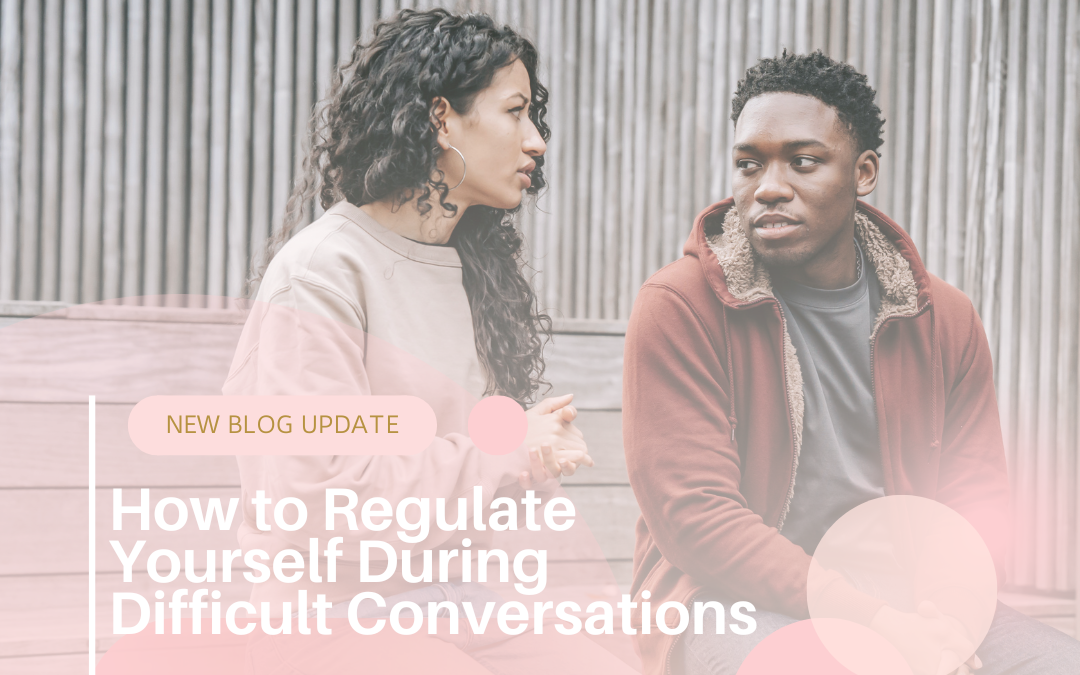Difficult conversations—whether they involve conflict, emotional discussions, or sensitive topics—can trigger strong reactions, making it challenging to stay calm and engaged. Learning to regulate yourself in these moments can lead to more productive, meaningful interactions.
1. Pause and Breathe
When emotions rise, take a deep breath. Slow, intentional breathing activates the parasympathetic nervous system, helping you stay grounded instead of reacting impulsively. Try inhaling for four seconds, holding for four, and exhaling for six.
2. Acknowledge Your Triggers
Recognizing when you’re feeling triggered can prevent an automatic emotional response. Notice physical cues—racing heart, clenched jaw, or shallow breathing—and mentally name what you’re feeling (e.g., “I feel defensive” or “I’m getting overwhelmed”). Awareness creates space for intentional responses.
3. Use Grounding Techniques
If you feel overwhelmed, engage in grounding techniques such as:
- Pressing your feet into the floor
- Holding something tangible (like a cold glass of water)
- Naming five things you can see, four things you can touch, three things you can hear, two things you can smell, and one thing you can taste
4. Slow Down Your Response
Give yourself permission to pause before speaking. If needed, say, “Let me take a moment to process that,” or “I need a second to gather my thoughts.” Responding thoughtfully rather than reacting emotionally can prevent escalation.
5. Stay Curious, Not Defensive
Approach the conversation with curiosity rather than judgment. Instead of immediately countering the other person’s words, try saying, “Help me understand what you mean by that” or “Can you clarify what you’re feeling?” This shifts the dynamic from conflict to understanding.
6. Set Boundaries If Needed
If a conversation becomes too overwhelming, it’s okay to pause or step away. You might say, “I want to continue this discussion, but I need a break to process my thoughts.” Setting boundaries ensures you engage in the conversation from a place of regulation rather than reactivity.
Difficult conversations are an opportunity for growth and deeper connection. By regulating yourself in the moment, you can navigate them with greater clarity, emotional balance, and mutual understanding.


Recent Comments